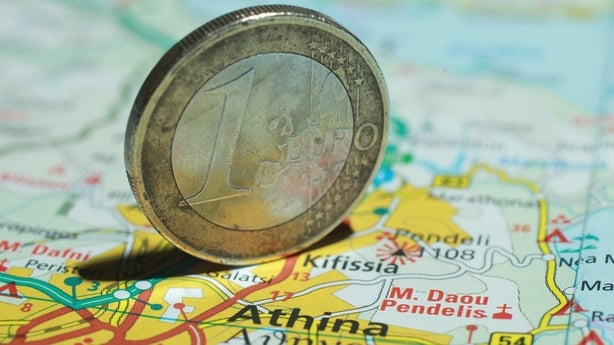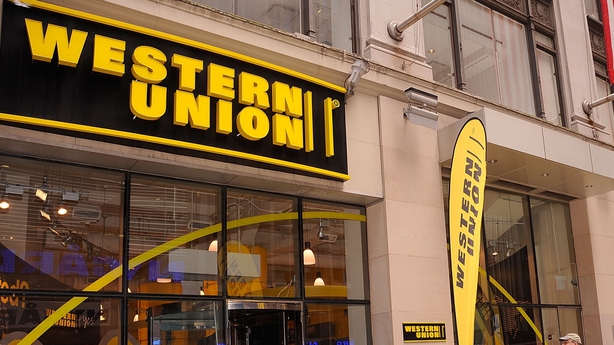European stocks endured their biggest fall since 2011, after Greece shut its banks and imposed capital controls amid deepening crisis.
€30 billion in market capitalisation was wiped off banks as investors dumped financial stocks, fearing the ripple effects of a potential Greek exit from the euro zone.
With the Athens stock exchange itself closed as part of weekend measures taken after a breakdown in talks between Greece and its creditors, a lot of the pain was also shouldered by US-listed Greek assets traded during pre-market hours.
Greece itself does not loom large on Europe's corporate radar but there were growing fears that contagion would spread to peripheral euro economies like Portugal and Spain.
All but one of the 10 worst-performing stocks on the STOXX Europe 600 index were banks, with Banco Comercial Portugues, Italy's Monte dei Paschi di Siena and Austria's Raiffeisen Bank down 6-9%.
The exception was travel operator TUI, which fell 7%, weighed down not just by Greece but also an Islamist shooting attack in Tunisia on Friday that killed 39 tourists.
For all the selling, however, there were more sanguine investors who said that the European Central Bank would fight to limit the fall-out of prolonged financial market turmoil and who said they were on the look-out for buying opportunities.
"We think that the current crisis - whatever the outcome - will probably not damage the longer-term prospects for European equities," Barclays strategists wrote in a note to clients.
Goldman Sachs wrote in a note that its base case remained that Greece would stay in the euro zone, even as the risks of its departure were rising.
European markets continued to see heavy losses this afternoon, but remained off their opening steeper losses.
After opening over 4% lower this morning, shares in Paris and Frankfurt were down 3.7% and 4.1% respectively by the close of business.
Shares in London were down 2%, while the Dublin stock exchange lost 2.5% after opening over 3% lower this morning.
The Greek stock market is shut until July 7.

Meanwhile, the euro fell almost 2% this morning as investors were spooked by the spectre of a Greek debt default, though it recovered somewhat in later trade.
This forced Athens to shut down its banks to prevent a run on deposits.
Adding to the gloomy backdrop, China shares dived another 7%, bringing the losses in the past two weeks to 25%, with the Chinese central bank's measures on Saturday to support the economy unable to calm jittery investors.
With the prospect of Greece being forced out of the euro in plain sight, the common currency fell as much as 1.9% to $1.0955, its lowest in almost a month.
Against the yen, the common currency dropped more than 3% to as low as 133.80 yen, a five-week low while it hit a seven and a half year low of £0.69885.
Earlier in Asian trade, Japan's Nikkei slumped 2.9% while the Hang Seng index in Hong Kong was down 2.6%.
Cash-strapped Greece looks certain to miss its debt repayment to the IMF tomorrow as Greece's European partners shut the door on extending a credit lifeline after Greece's surprise move to hold a referendum on bailout terms.
Fear of an imminent default by Greece hit Greek banks, a major buyer of Greek government bills, triggering bank runs over the weekend and forcing Prime Minister Alexis Tsipras to announce a bank holiday and capital controls.
Some investors, however, are pinning their hopes on the possibility that Greek voters will back the creditors' bailout terms in next weekend's referendum, returning Athens to the negotiating table, despite Tsipras urging a no vote.
Conspicuous by its absence so far from this year's Greek drama has been contagion to other "peripheral" euro nations' government bond markets as other European banks have limited exposure to Greece.
Any speculative selling of debt of such countries as Italy, Spain and Portugal will also likely be countered by the European Central Bank, which started buying euro zone sovereign debt from the markets in March to shore up the economy.
Yet perceptions could change if investors grow more worried about the future of the currency union, including whether Greece can stay within the euro zone after default.
Some investors think Greece's attempt to abandon the austerity programme - and possibly reset its economy through currency devaluation - could fuel more scepticism towards the euro project among the populace in other euro zone countries.

Meanwhile, Western Union, the world's largest money transfer company, said it was closed for business in Greece today and would remain closed for at least the rest of the week.
Western Union said it had not seen a significant increase in customers moving money out of Greece in the two months to June 27 but had seen a rise in funds being moved into the country.
"Our inbound business is seeing an upswing and we will continue to monitor this closely as and when our business in Greece is operational once gain," the company said in a statement to Reuters today.

